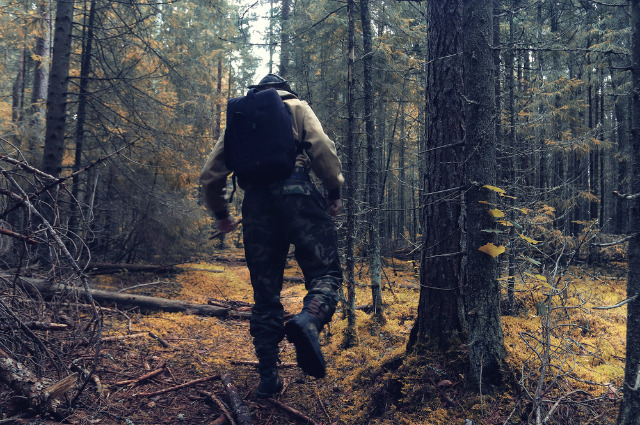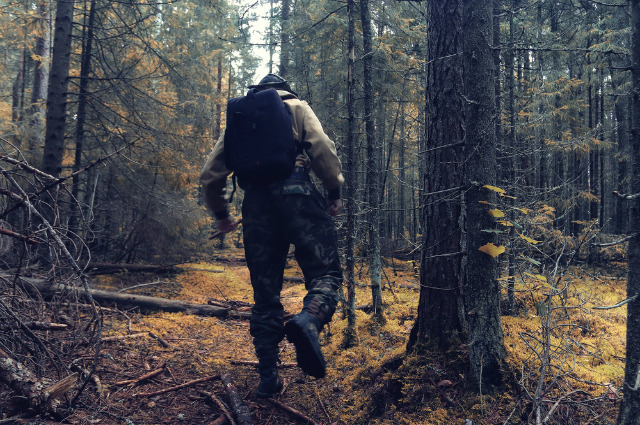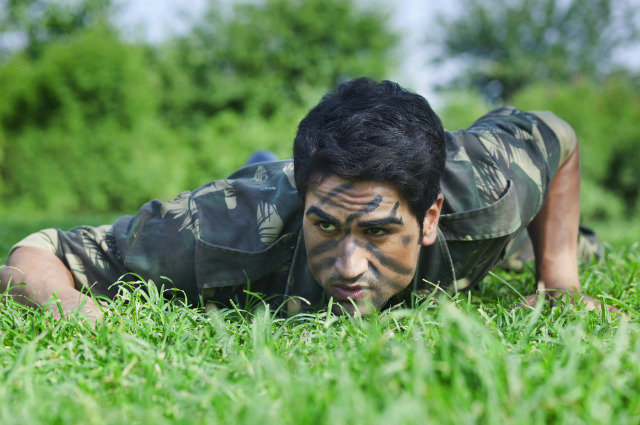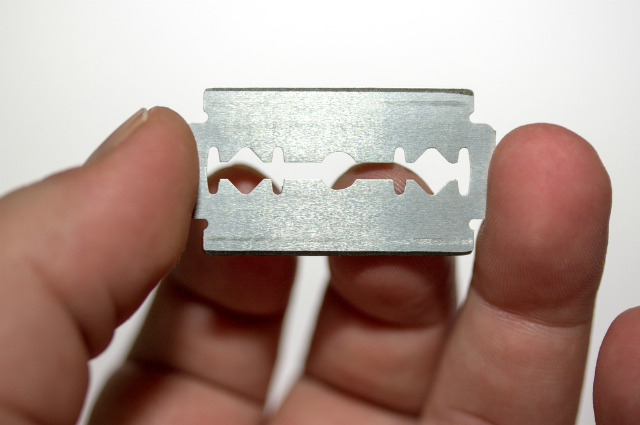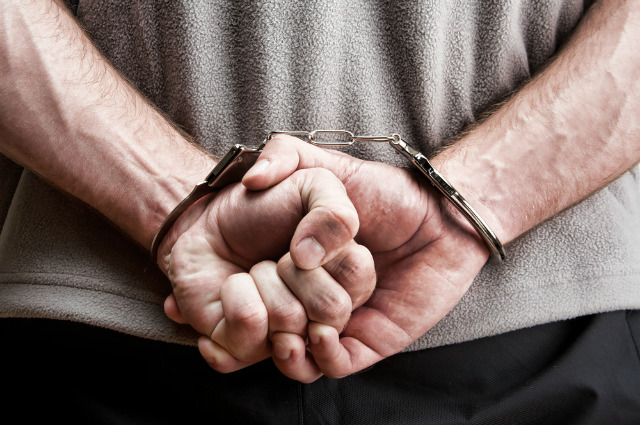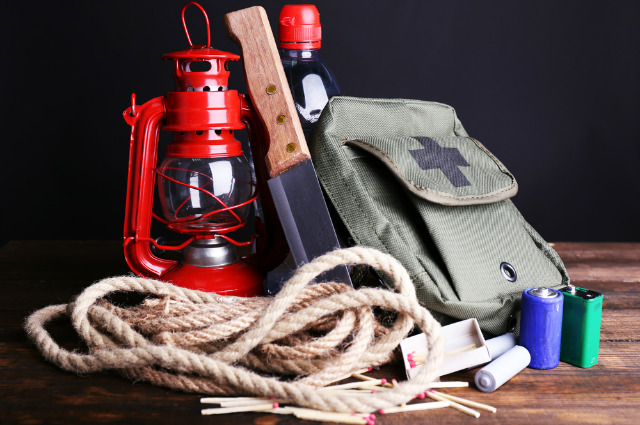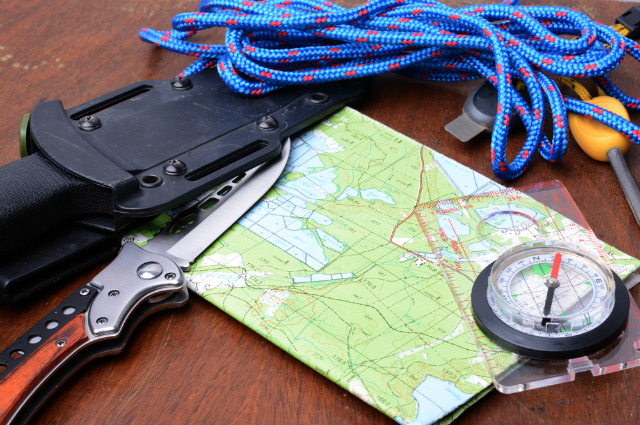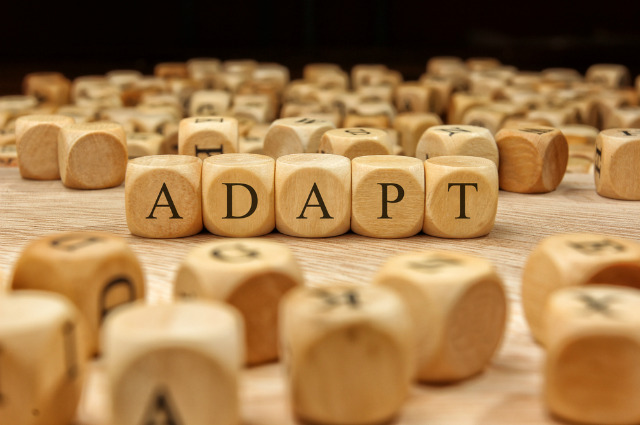10 Need-To-Know Survival Skills From A Former Navy SEAL
10 Need-to-Know Survival Skills from a Former Navy SEAL
For most, the word survival tends to conjure up thoughts of sparking kindling for fire, learning to build shelter from scratch or figuring out how to source clean water. No doubt, these types of skills are certainly good to have, but Clint Emerson a retired Navy SEAL and author of 100 DEADLY SKILLS: The SEAL Operative's Guide to Eluding Pursuers, Evading Capture, and Surviving Any Dangerous Situation, feels there are others that are far more necessary.
"Those are great skills, but they do not match the skills necessary to survive current threats," he said.
Exactly what skills do you need then? Emerson feels our concerns should be focused more on threats like hackers and lone wolf terrorists.
"Hacking issues leading to identity theft are concerning and will certainly cause a headache or two, but lone wolf attacks are deadly — and everyone, at a minimum, should mentally prepare themselves for such evil when out on the town, sitting in restaurants, transiting via public transportation and so on," he said.
To find out how to stay protected, we talked with Emerson about everything from worst case scenarios and self-defense techniques to evasion skills and what people should really know about surviving emergency situations. Here are the skills he said you absolutely need to know.
Run, Hide, Fight
"This is one of the skills in 100 Deadly Skills," Emerson explained. "A response check-off list of actions to take if caught in the cross fire. If you can run — run away from the threat in a zig-zag pattern. If you can't run, then hide. Hide behind objects that stop bullets (see Identifying Emergency Ballistic Shields). If you find yourself in a place where running or hiding isn't possible — like a train in France —fight and fight as a team if others are around."
Signature Reduction
Emerson said self-defense should go far beyond the ability to fight an attacker. "Self-defense has expanded beyond gouging out bad guy's eyes with your thumbs. It should be more holistic to include signature reduction — blending into environments and not standing out," he explained. "This also applies to your social media and online presence as well. The more you 'tell' without talking makes it easier to target you." He also recommended that a self-defense strategy includes the ability to escape. "A razor blade and handcuff key are easily concealed and can free you of most restraints," Emerson said. In his book, he suggests carrying both items in your waistband at all times.
Evasion
"Escape and evasion skills are more important now than ever," Emerson said. "Surviving a crisis is paramount. Simply put, do whatever it takes to live, not die. If you are out-gunned or taking severe blows to the head, then a temporary surrender might be necessary. The last thing you want is to get knocked out and have zero control over the outcome." If for some reason you are captured and restrained, Emerson said, it's important to "get big," which will create a slack in rope, chains, tape and zip ties. "As mentioned, stashing razor blades and handcuff keys in your waistline, belts and shoes will free you of most restraints," he added. "And always escape sooner rather than later — the longer detained the more security precautions the bad guys will put in place."
Reconsider What ‘Survival’ Means
As mentioned earlier, Emerson said it's important to think about the skills you'll need to survive current, more likely threats, rather than skills like building a fire or fishing with a shoelace. "Our natural born instincts are not good enough, we have to arm ourselves with a higher level of education beyond setting snares with fishing line," he explained. "Survival skills for today include cyber threat awareness, active shooter response, civil unrest and violent action against terrorists."
Adopt an Offensive Mindset
When asked about what people should really know about survival in modern times, Emerson said transitioning from a defensive to a more offensive mindset is absolutely essential. "If you are caught off guard or your life is threatened, a violent offensive response is the only answer these days," he said. "Consider active shooter/terrorist scenarios, more times than not, the shooter kills himself. The shooter is willing to die and when this is the case, you have to be prepared to kill the shooter before he kills you or others around you."
Train How You Fight, Fight How You Train
This is one of two of the most important skills Emerson said he learned during his time serving as a Navy SEAL. "You have to do more than just read this article," he explained. "You have to implement thoughts and skills of survival into your daily routine, make it a habit so that when crisis strikes you act out what you have already put in place. Ultimately decreasing exposure to the threat and increasing survivability."
Train: The Violent Nomad Workout
One step you can take to implement such training into your daily routine is with the "Violent Nomad Workout." As outlined in 100 Deadly Skills, the training regimen includes: one minute of hanging heavy bag strikes, a half-mile sprint, one minute of grounded heavy bag strikes, a second half-mile sprint, a one-minute heavy bag bear hug carry, and a third and final half-mile sprint. This workout, Emerson notes simulates fighting conditions and helps to reinforce a "run, fight, run" philosophy by building endurance for hand-to-hand combat.
Get Really F#!*ing Good at Simple Skills
The second of the two most important skills he learned during his time as a Navy Seal, Emerson said simplicity is essential for survival. "Being 'advanced' is all about doing the simple really f#!*ing good," he explained. "Keep it simple, be good at simple. If you overcomplicate your preparedness or response then odds are it won't work. Be good at simple and you'll end up far more advanced than your adversary."
Identify Emergency Ballistic Shields
Another essential survival skill, Emerson said it's important to be able to identify objects that can stop or slow bullets, and thus keep you safe. In 100 Deadly Skills he identifies dense wood, concrete, steel and granite as materials that can slow or stop bullets. Additionally, he points out that a granite-top table, the engine side of a car or a concrete planter would make for good bullet protection, but a trash can, a sofa, dry wall or the trunk side of a car would not. "Know the difference between cover and concealment," Emerson wrote. "Cover stops bullets, concealment doesn't."
The Violent Nomad Mindset
Finally, Emerson concludes his book by noting that adapting a "Violent Nomad" mindset, which includes the ability to recognize and protect against a wide array of threats, is one of the number one things you can do to ensure survival in an emergency situation. "Beyond any one particular skill, it is the Violent Nomad Mindset, defined by a spirit of improvisation and alertness to threats of all kinds, that distinguishes victims from survivors," Emerson noted.
